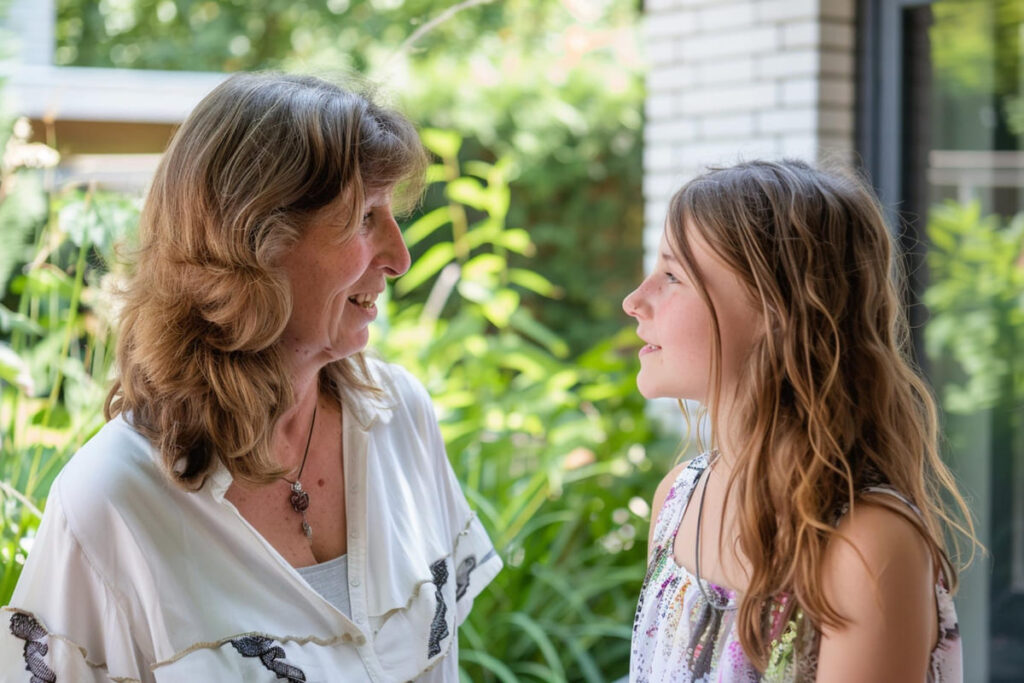Why It’s Okay to Admit You’re Struggling as an Older Parent and How It Makes You Stronger
Being an older parent comes with its own unique set of challenges, and it’s completely normal to feel overwhelmed or uncertain at times. You might worry that admitting those struggles makes you less capable, but the truth is quite the opposite.
Recognizing and accepting your difficulties as an older parent shows strength and opens the door to getting the support you need. It’s okay to acknowledge that parenting is hard, no matter your age. This article will explore why being honest about your experience benefits both you and your family.
Acknowledging struggles shows strength, not weakness

When you admit that things aren’t going perfectly, it doesn’t mean you’ve failed. In fact, recognizing your struggles takes a lot of courage. It shows that you are aware of your feelings and willing to face them honestly.
As an older parent, you might feel pressure to have everything under control. But being open about challenges creates space for support and understanding. Asking for help is a sign of emotional intelligence, not a weakness.
Showing vulnerability can actually strengthen your relationships. When you share what you’re going through, it encourages real connection with others. This authenticity is often more powerful than pretending everything is fine.
Remember, nobody expects you to be perfect. Accepting your limitations is part of being human. By owning your struggles, you are practicing self-care and building resilience over time.
It helps reduce the stigma around aging and caregiving

Admitting you’re struggling as an older parent can actually challenge the negative stereotypes about aging. When you share your experiences, you show that it’s normal to face difficulties, no matter your age. This helps break down the idea that older adults always have to be strong and independent.
Opening up also shines a light on the challenges caregivers face. Many older parents feel pressure to handle everything alone, but talking about it can make you feel less isolated. It encourages others to be honest about their struggles too.
By being open, you help change how people see aging and caregiving. It makes it easier for others to seek help without feeling shame. Reducing stigma means more support and understanding for everyone involved.
Opening up encourages honest conversations with family

When you share your struggles, it sets a tone of honesty that makes others feel safe to do the same. It’s okay to admit when things are tough—that kind of openness helps break down walls.
You don’t have to have all the answers or pretend everything is perfect. Just being clear about what you’re feeling can create a space where real conversations happen.
Your family will notice when you’re willing to be vulnerable, and that can encourage them to open up too. It builds trust because everyone sees that it’s safe to speak honestly.
If you listen without judgment and show empathy, your conversations will be stronger. This gives everyone a chance to feel understood and supported, instead of alone with their struggles.
Remember, honest talks don’t have to be long or perfect. Even small moments of sharing can make a difference in how connected your family feels.
Admitting challenges lets you ask for needed help.

When you admit you’re struggling, it opens the door to getting support. You don’t have to carry everything on your own, even if it feels like that sometimes.
It’s normal to want to appear strong or in control. But asking for help doesn’t mean you’re weak or failing.
Once you accept the challenges you’re facing, you can start reaching out. Whether it’s talking to a friend, family member, or someone who understands your situation, support is available.
Being honest about your struggles helps others know how to assist you best. It also makes the burden feel lighter, instead of carrying it all silently.
Remember, asking for help is just a way to handle specific challenges, not a judgment on who you are. You deserve to get the assistance that makes your parenting journey easier.
It prevents burnout by promoting self-care.

Admitting you’re struggling is a key step toward taking better care of yourself. When you recognize your limits, you’re more likely to prioritize rest, nutrition, and downtime.
Self-care isn’t just about occasional treats; it’s about small, consistent habits. Sleep is crucial—aim for a regular schedule with 7-9 hours to help your mind and body recover.
Taking time for yourself helps reduce stress before it builds up. Whether it’s a few minutes of mindful breathing or a walk outside, these breaks recharge your energy.
If you try to push through without support, burnout can sneak up fast. Asking for help or seeking professional guidance when needed can make a big difference in maintaining your well-being.
Remember, self-care is not selfish. It’s necessary to keep you feeling balanced and able to handle the demands of parenting, especially as you juggle the challenges that come with being an older parent.
Recognizing limits protects your mental health

It’s important to know your own limits, especially as an older parent. Trying to do everything without recognizing when you’re reaching your edge can leave you feeling drained and overwhelmed.
When you understand your mental and physical boundaries, you can make better choices about where to put your energy. This helps prevent burnout and keeps you feeling more balanced.
Setting boundaries isn’t about being selfish. It’s about protecting your well-being so you can be there for your family in a healthier, more sustainable way. Saying no or asking for help is a sign of strength, not failure.
Remember, your needs matter too. Respecting your limits allows you to create space for rest and personal time, which supports your mental health in the long run.
It models healthy coping for your children.

When you admit you’re struggling, you show your kids that it’s okay to have tough moments. You teach them that everyone faces challenges, and that asking for help or taking time to care for yourself is normal.
You’re also demonstrating how to handle stress in a healthy way. Whether it’s taking a walk, talking about your feelings, or practicing deep breathing, your kids learn from watching you. This kind of modeling gives them tools to manage their own emotions.
By being honest about your struggles, you help break down the idea that parents have to be perfect all the time. That honesty encourages your children to be open about their feelings, which supports emotional resilience.
In the long run, showing vulnerability helps build a stronger, more understanding relationship with your kids. It sets a positive example that reaching out and coping smartly are signs of strength, not weakness.
Being truthful builds deeper family connections

When you admit you’re struggling, you open the door for honest conversations. Sharing your feelings honestly creates a space where others feel safe to do the same. This kind of openness encourages trust between you and your family.
Being truthful shows your family that you value real connection over pretending everything is perfect. It helps everyone understand each other better and reduces misunderstandings. When everyone speaks their truth with kindness, the bonds naturally get stronger.
You don’t have to carry everything alone. Letting your family in on your challenges invites support and empathy. It also teaches your children and loved ones that vulnerability is a part of life, not something to hide.
When your family hears your honest experiences, it builds a foundation where everyone feels heard and accepted. That foundation is important for facing any tough moments together without judgment or fear.
Accepting imperfections reduces guilt and shame

When you accept that you’re not perfect, it takes some of the pressure off. You don’t have to pretend you’ve got everything under control all the time. This can reduce feelings of guilt when things don’t go as planned.
Being an older parent comes with unique challenges, and it’s okay to admit you’re struggling. When you embrace your imperfections, it becomes easier to be kind to yourself instead of beating yourself up.
Letting go of the need to be perfect helps lower the shame that can come from feeling like you’re failing. It opens up space for self-compassion, which makes dealing with tough moments a little less painful.
Remember, everyone has challenges and makes mistakes. Accepting your flaws isn’t about giving up; it’s about being realistic and gentle with yourself. This mindset can help you feel more balanced and less overwhelmed.
It helps set realistic expectations for yourself

Admitting you’re struggling lets you see things more clearly. When you’re honest about your challenges, you can set goals that actually fit with your situation. This helps prevent feeling like you have to be perfect all the time.
Realistic expectations mean you won’t beat yourself up over things beyond your control. If you try to do everything perfectly as an older parent, you might end up feeling drained or disappointed. Knowing your limits helps you focus on what’s truly important.
It’s okay if some days are harder than others. By accepting that, you give yourself space to rest and recharge. You don’t have to prove you can handle it all on your own. Setting reasonable goals makes parenting less stressful and more manageable.







